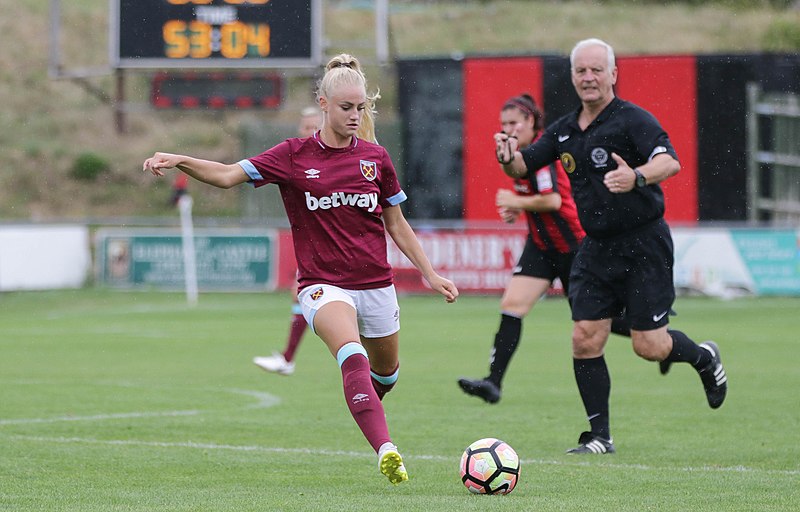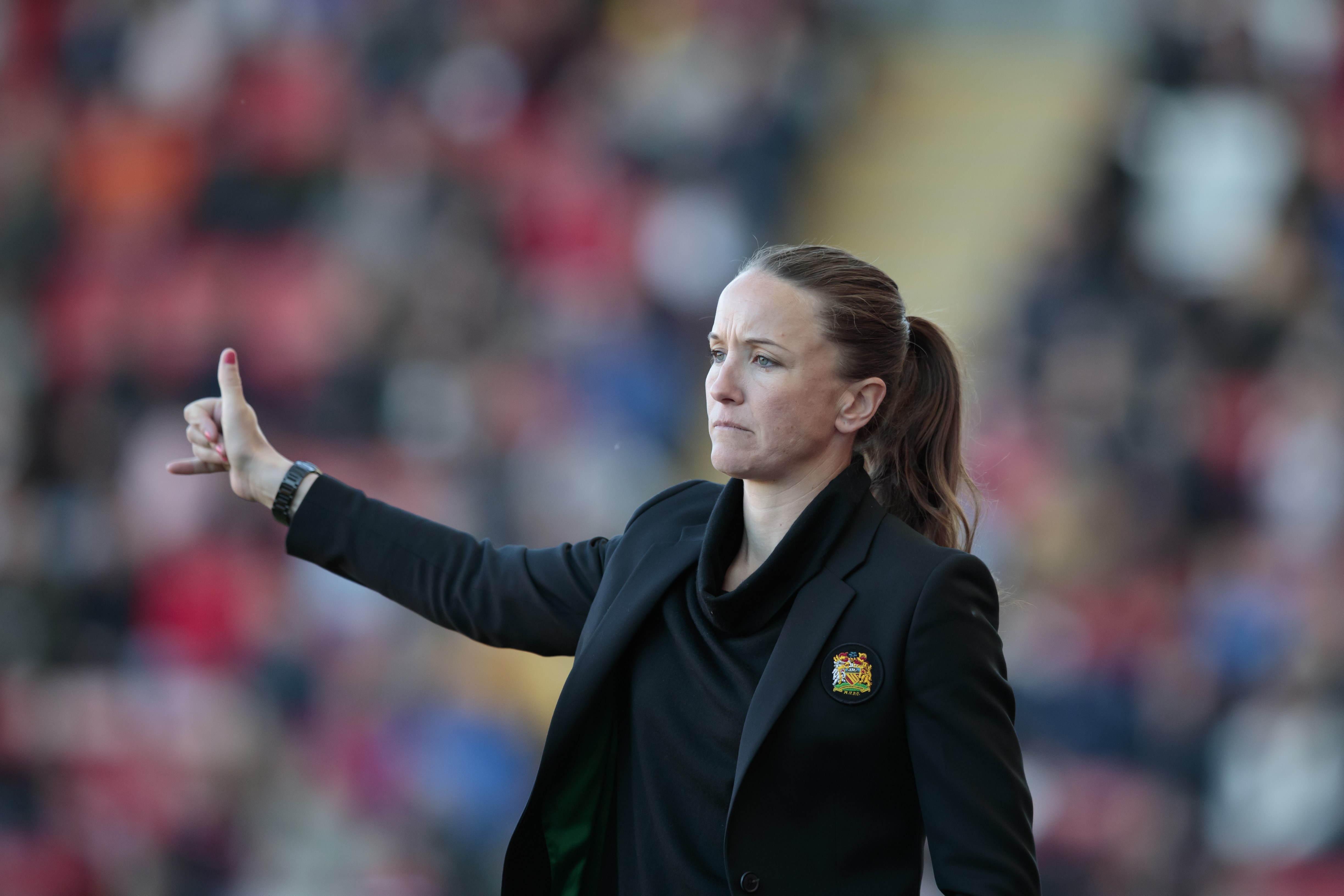Women’s place in football is now firmly established and increasingly respected. Unlike the men’s game, female footballers are typically characterised as gay, and unlike many stereotypes, this one happens to hold some truth. The over-representation of gay women in the sport is widely accepted but rarely questioned. Why is this the case, and as women’s football grows in popularity, is there a chance this unique culture will disappear? UCFB Marketing Executive Lydia Scobie summarises her Master’s dissertation on the subject.
Studies have reported an over-representation of lesbian and bisexual players at every ability level in the UK. This is hard to miss. In recent years, high-profile footballers in the UK, and the US especially, have been vocal and unforgiving about their sexuality, often commenting on the prevalence of gay women on their team.
Around 1.3 million people watched a BBC documentary on West Ham United FC Women. One episode focused on the relationship between teammates Alisha Lehmann and Ramona Bachmann, where Lehmann noted: “In women’s football, it’s perfectly normal for people to come out. It doesn’t change anything.” After leading her US team to victory in the World Cup last year, Megan Rapinoe stated: “You can’t win a championship without gays on your team. That’s science right there!”

This prevalence of gay women in football has been the case for a long time, too. As the sport grows vastly in popularity, researchers are paying more attention to how a culture of tolerance and openness towards LGBT+ players has been cultivated. Generally, this is put down to engrained gender expectations and how sport functions in society. It is impossible to claim any one theory as fact; identities are multi-layered, culture is complex and sexualities are not binary.
Women’s football clubs have forever harboured an atmosphere of inclusivity and acceptance. Footballing spaces can offer marginalised identities a sanctity in sport which can enable players to reject overriding notions of heterosexuality.
Historically, participating in a contact sport within a previously male-dominated arena is breaking convention already. Gender and sexuality theorists argue that not complying with orthodox rules regarding femininity, and using the physical body for power, strength and skill, provokes visions of masculinity, and therefore homosexuality.
Moreover, the lack of funding, structure and recognition for paid and competitive women’s football meant that women and girls joined clubs purely for social and fitness benefits.

The way that single-sex groups socialise within teams is influential. Player populations often rely on off-pitch activities to protect and expect homosexuality. Studies have noted that drinking games, singing songs and trying to impress established members of the team all play a part in how, when and why female footballers express their sexuality.
There have also been casual links between positions of responsibility, time spent around teammates and homosexuality. This suggests that perhaps upholding club values and socialising with the team more often could influence how a player identifies their sexuality.
As previously mentioned, none of this research can be taken as fact. Moreover, football should not be viewed purely as a vehicle for women to express their sexuality, however, when discussing the history and culture of the sport, it cannot be dismissed.
The exponential growth of participation and popularity in women’s football in the UK within the last decade is well-documented. Clubs are finally seeing their female counterparts as genuine commercial assets rather than side-line community projects. Sponsorship deals reach £10 million, viewing figures rival men’s sport and England stars are now household names.
But some fans and players fear that as the structure of football mirrors the men’s game, operating within the sport can become increasingly dangerous. Stepping into the mainstream comes with more media pressures, more chance of abuse and leads to less confidence when coming out. This trickles down to grass-roots players, and there is a danger that eventually the spirit of tolerance and openness will be diluted, therefore denying women a safe space to express and experiment with their sexuality.
As pressure builds for the 2023 World Cup and Hollywood stars announce their investment in new NWSL team Angel City, we must keep a careful eye on how brands, sponsors and the media portrays female footballers.













